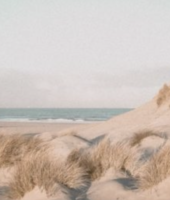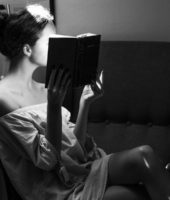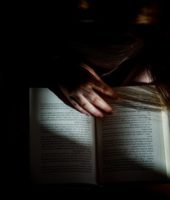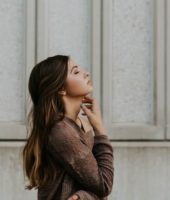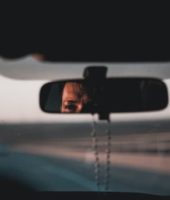Self-trust is defined as the ability to take care of oneself, to believe that one can think, act on his or her own; and is indeed, a learnable skill and a choice to be made in each moment of our lives.
Consequently, we have to be grounded in our reality to cultivate self-trust; it takes nurturing, intent, compassion and listening.
In psychology from social to cognitive theories, self-trust is also referred to as self-efficacy, which is the capacity to organize and execute the course of action that you need to achieve the goals you desire, to manage prospective or future situations. – Albert Bandura
Ralph Guerson has a quote that goes like this: self-trust is the first secret to success, the essence of heroism.
Certainly, he got it right; all aspects of our lives require trust. Showing up to whatever life presents us with a spiritual warrior mentality, because success sometimes cannot be guaranteed, but we must take action regardless of the outcome, confronting our fears with courage.
Trusting ourselves is seeing a problem and getting curious; letting the creative mind do its job. It’s about embracing impermanence, and this attitude takes commitment with ourselves.
—————————————————————————————————
Are we born with self-trust?
Human beings are not born with self-trust. It is cultivated from childhood by parents. And if the child has a fertile ground of self-trust, it becomes a confident adult.
Self-trust is something that is learned and developed over time; according to the Cntyia wall, it is an inner resource you can rely upon to navigate the world.
Carl Rogers, the father of humanistic Psychology, said that feeling unconditional positive regard, and being raised in an environment where you do not doubt yourself, is an ideal place for the unfolding of self-trust.
Unconditional positive regard is when significant others and parents accept and love the person for who she is, flaws and all. The love does not withdraw because the person made a mistake.
With this affirmation, a question comes to my mind: what about those who didn’t grow up in an environment of unconditional positive regard (like me), or a stable environment? How do they develop self-trust?
To answer this question in all honesty, I guess there is deep work to be done. But it is not impossible, because self-trust is not static and we can learn it.
Self-trust needs a lot of practice and courage because we have to confront our out-of-control inner demons and the exterior ones.
We have to confront and navigate our fear of the unknown, fear of not being perfect, fear of making mistakes, fear of not being enough and the fear of judgment.
These fears, if not well confronted and understood, can sabotage our creative process, impede our growth/expansion and wreak our sense of capacity.
—————————————————————————————————
The influence of self-trust in the creative process
Some can ask me, why self-trust is so important to the act of creation or creativity; the answer for me is quite simple because without it, you will not be able to take action in whatever you desire to work on.
Self-trust allows us to commit to the process, explore, make mistakes, learn from the mistakes, accomplish something and move forward.
Think about self-trust as the carburant/fuel to your car; it is what helps you not cripple into silence avoiding self-expression.
What doesn’t kill me makes me stronger. – Albert Camus
Life is not an even path; it presents us mountains, rough roads and contrast. Having the trust that we can surpass any difficulty with courage. Fearing less because that is what gives us strength, builds character and stamina to go toward our dreams and goals.
Self-trust makes you define where and how you want to go, how you want to produce your art, what are the systems that you need to implement to be more productive, were to experiment more, where to stop and where to search for help.
Has Erica Jong said: “take your life in your hands and what happens? A terrible thing: no one to blame.”
Self-trust occurs in spurts. It is like a spiritual practice, and we show up no matter what. Wither we like it or not.
This act imprints something in us, and we begin to trust ourselves, to have courage. We start creating our path, we will have something that we created, with our name on it, and consequently, we will feel a sense of pride for the accomplishment.
A person that learns to rely upon his/her instincts, accompanied by analytical insight, is one that is prepared to face the unknown.
Self-trust unlocks the doorway to creative freedom and personal truth.
With all the blocks that exist on our path having the mindset of self-council or trust, we begin to negative our demons. We confront them, look at them and do not take commands from them; we guide them and decide which path we are going to take.
We integrate ourselves with our shadow side and do not remain stuck as a potato sack crying and doing nothing instead of helping ourselves.
The road will not be smooth, but we show up to our lives.We recover or discover a sense of power and we become open-minded.
I think we should all ask ourselves a few simple questions that I believe are very profound and important to develop emotional competence:
Who do I want to be? How do I want to remember me when I become old? Do I want to live with unlived desires? Forget the outcomes, how is it to live with unlived dreams?
These questions can give us a clear perspective of what we do not want in our lives.
We need to create frequency, consistency, and focus; enthusiasm is also required to feel joy with our journey.
We need to get back to ourselves; we need to give ourselves to ourselves, and not turn our backs to ourselves.
Learning to exist on our own; not waiting for the permission of somebody or reassurance to trust ourselves to act on our dreams.
What will happen if we defy ourselves and take our lives into our hands? I guess we will have not only gained responsibility, but also the proof that we are stronger than we thought.
The signs or the fruits of consistency and focus will be eventually feeling confident to be ourselves, including the parts that make mistakes and are vulnerable.
We begin to trust ourselves to deal with life, to have faith, to make mistakes and then repair and grow from them.
Furthermore, we start to trust our creativity and we deal with the attacks of self-doubt with courage and serenity.
With this in mind, we must be willing to be a bad artist to be an artist, and if we feel anxiety with our creativity we must use it to our advantage – which is a weapon.
Feel the anxiety, use the anxiety to paint, right, etc. And then feel proud because we did it, we did not stop.
Has Joseph Chilton Pearce said: To live a creative life, we must lose our fear of being wrong.
—————————————————————————————————
What our mind focuses on becomes our world.
Your mind will take the shape of what you frequently hold in thought, because the human spirit is colored by such impressions.
– Marcus Aurelius
It is very important to sort through what is our inner script aka negative self-view or internal talk, concerning ourselves in the creative act.
Sometimes we tend to move into our journey and not pay attention to our thoughts and feelings.
Words like: I’m am not capable, I’m stupid, who am I kidding, I can never do something right, I’m not creative enough, I don’t have good enough ideas, how dare I could give my gifts to the world, can poison our self-trust and consequently our creative process.
A person, who has positive feelings about him or herself, faces challenges in life, accepts failure, impermanence, unhappiness and is open to himself and people.
If we continuously focus on the negative perspective of ourselves, it is what we will receive. We will create this experience and believe that is our destiny.
Its an obligation to ourselves to challenge our negative thoughts and question them.
A good idea is to create an internal defender on our side. The one that proves that we did better, that we are capable, that we can create.
Writing down every day everything we do that we feel happy and proud about; so we have a testimony. With time, we accumulate proof of our value.
Having a positive log at the end of the day to reflect on, and saying the great things we have done, helps gain confidence and keep a log of mistakes for wisdom and change.
We need to strive for patience and not perfection step by step, is a mentality to imprint. We will make mistakes but in the end, we will get better.
We cannot let the irrational thoughts stay with us. We need to correct them and with time, we will think more clearly.
Challenging the core negative beliefs can be daunting and scary, but it is the best way to go through our lives.
First off don’t let the force of the impression carry you away. Say to it hold up a bit and let me see who you are and where you are from. Let me put you to the test.
– Epictetus
—————————————————————————————————
The kryptonite of self-trust/Comparison
I remember one day, at a power yoga class, my yoga teacher Bernacho was analyzing how we were doing the poses.
I used to have this habit of looking around, turning to see what the other yoga students were doing especially when the poses were hard or when I was afraid to do it wrong.
In these moments, she always affirmed: Emilia, look at your practice, be focused and mindful, or else you will lose energy by looking around. You will become weak and not be able to trust yourself. Track your progress and mistakes.
Emilia, you will always rely on other people’s practice or perspectives if you continue like this. Focus on your own. And she was damn right.
Has Seneca on his essay of tranquility said: Stop looking or fantasizing about people’s lives, follow your path, focus.
We constantly look at other people’s life thinking it’s better than ours. We start questioning ourselves, and doubting ourselves. Asking: what am I doing wrong? And why me? instead of asking the right questions. Like what can I do to attain what I truly need
Is the true athlete the person in rigorous training against false impressions, remain firm, you who suffer, do not be kidnapped by your impressions. The struggle is great, the task is divine, to gain mastery, freedom, happiness, and tranquility.
– Epictetus
We lose energy when we look around, it’s very easy for us to see the negative in ourselves. We need to analyze better our lives, and purposefully search for the evidence that confirms our capabilities.
Rushing, not paying attention, comparing and being obsessed with results is damaging for our self-trust.
Unfortunately, we discard small changes. We want the big fast massive change now. But it takes time, small habits compound on consistent ones.
A Bamboo tree can barely be seen for the first five years before growing ninety feet into the air within six weeks.
Mastery requires patience when we enjoy the process we permit ourselves to love every moment of what are we doing.
—————————————————————————————————
Other mental blocks or core limiting beliefs that impede our self-trust in the act of Creation.
Some core negative beliefs that we have come from society, parents, religion, friends.
However, it is crucial to remember that beliefs are beliefs, not facts, and none of those need to be true.
Common negative beliefs that we carry are:
Artists are broke, drunks, addicts, crazy, nobody loves them, they are destined to be abandoned, they don’t deserve consistent success.
Core negative beliefs keep us scared and stagnate our process, It’s important to have compassion towards ourselves.
We are punitive when we make mistakes. We harshly judge ourselves. We criticize us in a vague, irresponsible and hateful way.
We arbor perfectionism beliefs, age beliefs, and the not good enough beliefs.
Something interesting about the core negative beliefs is that sometimes it’s easier for us to remain blocked and hold onto those.
We strangely become comfortable with them. We don’t have to act or do something about it because of our fear of the unknown.
We feel fear to change the status of the situation. We remain stuck, living in our brain and doing nothing about it.
Sometimes we forget that art and creativity are working with the unknown.
We live in this limbo of doubt, always questioning what will happen if I become a successful artist. Will I be prolific? Will I succeed? etc.
We think irrationally and on extremes. We have the either/or mentality.
An example of a common either/or internal debate can be: If I become an artist, I will have to end my relationship my wife or boyfriend/girlfriend.
We forget that we can be an artist and have a lover like everybody else – if I want. Because at the end of the day, it is about choosing what we want. And sometimes we forget that we have this power or fear using it.
We are scared of success, of failure, of the unknown. We lack joy in our process of creating art. We are used to getting our needs met by being unhappy.
Life shrinks and expands in proportion to one’s courage. – Anais Nin
We forget that a successful creative carrier also involves successful creative failures.
In the middle of difficulty lies opportunity.
– Albert Einstein
—————————————————————————————————
Go inside to see the light/ how introspection helps self-trust
-Reflect each day in order to keep improving-
It is important to have self-awareness of ourselves, our thoughts and our feelings.
Sometimes it can be very difficult to do that, because we are afraid to navigate what we are going through. Our emotional turbulence feels too painful and overwhelming to explore.
As a consequence of this lack of awareness or lack of exploration, we end up suppressing ourselves. And consequently, we do not obtain the clarity we need to address a situation and solve it.
The life which is not examined is not worth living.
– Plato
It’s important to question our feelings/emotions. Why do I feel what I fee?
We need to name what we feel to let go of stuck emotions, because it clogs our view and wisdom.
Introspection and awareness can make us realize who our inner critic is, what is its agenda. What do we need, what do we want and what undermines our self-trust; how we want to conduct our lives.
Introspecting about our core negative beliefs heals the heart, and this attitude needs to be done because sometimes we make decisions based on these negative beliefs. And they have an insidious impact on our lives.
As Carl Jung said: who looks outside dreams. Who looks inside, awakens.
I will keep constant watch over me and most usefully will put each day up for review. – Seneca
Not sabotaging ourselves, that is a prerogative. Because to do creative work freely, we have to voice our anger or fear-resistance. We have to take care of ourselves, our creative child, as if we were parents.
We need to learn to analyze what are the payoffs of not doing the job, what I resent on this job, what scares me and what am I avoiding by not doing it.
Questioning, introspecting, removes fear and we can access our most powerful selves.
I understand that sometimes we want to block ourselves because we are afraid where our creativity can take us. But we need to understand that when we know who we are and what we want, creativity flows lightly.
But since we are afraid, of the unknown, we start blocking our channel. We use alcohol, food, drugs, social media/addiction to distractions.
These things alone are not the problem, it is the excess of them that is bad. It clogs our clarity, strength, our energy; we feel stagnant, foggy and we feel comfortable with that because nobody will judge us because we did not do the work.
We are afraid of our real potential, of new possibilities; we want to shut down the door of our greatness.
Life is like a theater. You are assigned a role. If you do not like the role, keep in mind that you have the power to recreate the role you want.
– Haemin Sunim
—————————————————————————————————
An end Note on trusting ourselves as a creator
Trusting ourselves as creators does not mean being arrogant or exaggerating our talents. If we do that, we are missing the point.
Self-trust is about taking action and being open to learning from mistakes and successes.
We have to be very attentive because sometimes we can associate ourselves with the idea that we are perfect, and consequently without even knowing, are afraid of changing when something goes wrong; or not even seeing that something went wrong.
We become rigid and inflexible, and we can stagnate because we do not want to explore and innovate, fixated with a hit formula.
Falling in the conviction that everything is predictable and thinking everybody needs to like what we do. Or that people owe us something, and we all know that is not true.
Our creativity, our self-trust, must be navigated with humility and confidence; we do not have to hide our vulnerability to be strong or confident. Because there is such strength and courage in showing vulnerability.
We are our own greatest teacher, and for us to truly learn, we need to own all of our internal compositions; integrate with all we have inside. Listen and work through the confusion to release low energy emotions to elevate creativity and joyful moments.
Self-trust is our tool. It is what gives us creative deepening, which encourages us to navigate, pain, dislikes, dreams with a heroic attitude.
We can feel exhausted sometimes or frustrated, but we get back up and we move on toward our lives.
Only a mediocre writer is always at his best. – Peter Rogers
We need to be loving toward ourselves, experience our process. And having a beginner’s mind in our endeavors always helps, and most important, commit ourselves to our journey.
To finish, I leave here the healing and encouraging words of Matthew Fox: Our creativity does not consist in being right all the time, but in making of all our experiences, including the mistaken and imperfect ones, a holy whole.

